My first reading list post: Books That Have Inspired Me (Part 1).
My second reading list post: Books That Have Inspired Me (Part 2).
Imagination
Where would we be without imagination?
Our collective power of visualization, creativity, and storytelling has enabled us to build everything from machines to megacities. We’ve developed language, agriculture, trade, governance systems, music, art, and poetry.
We’ve mapped the stars, uncovered mathematics, taken to the skies, and landed on the moon. We have cured diseases, built global communications systems, created supercomputers, and now are giving birth to Artificial Intelligence.
Imagination is the tool of visionaries, and visionaries are the architects of a better tomorrow.
The following books have helped me to better understand our human nature and our potential for darkness and light. These books serve both as cautionary tales and blueprints to help guide us into a better future.
This is the final installment of my reading list “Books That Have Inspired Me”. Above all else, my intention for these posts is to instill a sense of perspective, curiosity, and optimism. I hope you found these reflections useful in your own journey of discovery.
If so, please leave a like, comment, or re-stack to support my work. It goes a long way. Thank you!
Foundation by Isaac Asimov
Science fiction often becomes science fact, it’s simply a function of time and scale. This classic series tells an epic tale of the rise and fall of civilizations over 1500 years. It describes how this could play out in humanity’s far future.
What sets Asimov’s work apart is his birds-eye view storytelling, focusing on grand systems and socio-political dynamics rather than individual characters and their intimate evolution. ‘Foundation’ reads more like a history book / prophetic work rather than a hero’s journey / space opera.
What it offers, though, is a brilliant, provocative, satirical mirror of our own society’s shortcomings, and an optimistic vision of humanity succeeding through unity, innovation, and perseverance.
I, Robot by Isaac Asimov
‘I, Robot’ is a collection of short stories that feels like a meditation on Artificial Intelligence and Robotics. It ponders the philosophical and ethical implications of AI as well as the challenges of programming it in a way that actually aligns with human interests and well-being.
Not to be confused with the Will Smith movie (which bears little connection to the source material), each story is a contained, gripping, and thought-provoking experience. I believe these vignettes serve as useful parables for anyone involved in AI development today.
Hyperion by Dan Simmons
One of the most breathtaking, imaginative, poetic, sci-fi operas I’ve ever read. The vast universe of ‘Hyperion’ is full of otherworldly visions, mind-bending scale, horror, action, heartache, and intrigue. Simmons touches on themes of parenting, war, love, planetary politics, religion, nature, time travel, and technology run amok.
This captivating tale is portrayed from the perspectives of seven different pilgrims; whose individual stories reveal the grand mystery of Hyperion and its terrifying secrets.
This book and its sequels are, among many things, a cautionary tale about our precarious reliance on technology, particularly AI. Blind acceptance can lead to an enslaved populace, a dystopian society, and potentially the end of us all.
Watchmen by Alan Moore & Dave Gibbons
In my opinion, ‘Watchmen’ is the greatest graphic novel of all time. It serves as an examination on superheroes, exploring their motivations, psychology, and the impact their existence would have on society. This thought experiment is intertwined with a sprawling, genre-blending story that spans detective, sci-fi, conspiracy, political, pirates, war-time, and caped crusader narratives.
The art and writing are sharp, raw, unapologetic, and symmetrical; allowing Moore and Gibbons to present the story in unique ways that can only be conveyed through the medium of graphic novels. The heroes and villains are flawed, complex, conflicted, and utterly compelling.
This story challenged me to think deeply about society, justice, the greater good, and what drives people to do what they do. The truth is, we live in a darker and more nuanced reality than classic comic book stories often portray. I couldn’t help but contemplate the warped ways we go about trying to fix society, or numb ourselves from its horrors.
But amidst the darkness, there is also light. We always have a choice in walking the righteous path, regardless of how deep in the mud you are. Truth, fairness, and justice are worth fighting for. In this regard, Rorschach’s words forever sit with me:
Marvels by Kurt Busiek & Alex Ross
A beautifully rendered, non-traditional tale of Marvel superheroes in their golden age. Told from the perspective of an ordinary human, a photojournalist named Phil Sheldon. This is less an action-adventure centered on costumed heroes, but rather a commentary on god-like individuals and the mortals caught in their cross-fire.
What does it mean to have superpowers in a world where only a few wield them? How do we react to these individuals? Is it fear, escapism, wonder, insecurity, hatred, despair, or idolatry? How do we reckon with our own place in a world that is leaving us behind? These are questions we will soon be forced to confront as technology (eg AI, bio-engineering) continues its relentless advance.
V For Vendetta by Alan Moore & David Lloyd
A haunting, passionate, and triumphant tale of freedom, identity, oppression, and resistance in a totalitarian society. V is a mythical figure, a pure embodiment of conviction, genius, eloquence, and vengeance.
This story, released ahead of its time, draws obvious parallels to our current surveillance economy & police state. If one pays attention, it’s not difficult to recognize our own trajectory in the loss of privacy, agency, and basic freedoms.
The characters, through their heartbreaking struggles, build an intriguing argument for both quiet and overt rebellion. Though I personally believe that we can bring about change and reform without the need for violence.
We have powerful weapons in the form of innovation, cooperation, compassion, and creativity. Paradoxically, an oppressive regime may be both the incubator and catalyst for this kind of societal metamorphosis.
Snow Crash by Neal Stephenson
A radical cyberpunk vision of our future, ‘Snow Crash’ is one of the earliest and most vivid depictions of the metaverse. Stephenson, a prophetic author, has expanded into an active builder in the web3 space, working to create a decentralized infrastructure to avoid the dystopian scenarios in his fictional work. Aspiring blockchain enthusiasts and those seeking to build in web3 will find this book an informative primer and a fun ride.
Set in a surreal and chaotic future America, ‘Snow Crash’ plays with the duality of simultaneously living in virtual and physical worlds. Spearheaded by iconoclastic, bad-ass characters, Stephenson weaves a complex world where citizens dwell in cyberspace as much as they inhabit the physical world, if not more.
The novel is infused with biting commentary on rampant consumerism, corporate greed, inept governments, and organized crime. It highlights the fragility of our interconnected systems and acknowledges the unsung heroes that protect us from disaster. Beautifully interwoven throughout the story are themes of theology, linguistics, economics, and philosophy.
What stuck with me the most after reading the book was the idea that one can become a true hero (or Hiro) in the virtual world. Through your actions in the metaverse, you can indeed make a tangible impact on the ‘real’ world. Reality is more interconnected and intertwined than we think.
Game of Thrones by George R. R. Martin
The Song of Fire and Ice storyline is a captivating, grandiose fantasy that took the world by storm during its HBO series’ successful run. Beyond the intricate storytelling and incredible characters, what has resonated with me is the unforgettable depiction of the complexities of politics and power.
Martin shines a relentless light on the darker side of war and politics, revealing how it infiltrates every aspect of our lives. It is a black mirror for our reality, as I observe similar dynamics within organizations and among people who wield power.
We are playing games in all aspects of life, whether we are aware or not. They can be found within the bounds of school, work, community, or politics. There are those who see the game for what it is, those who blindly adhere to the established rules, and those who make the rules.
It’s a truth I was blind to for too long. By understanding the nature of the game, we can liberate ourselves from becoming someone else’s pawn on their chessboard.
Freedom comes to those who create and play their own game.
What books have sparked your imagination? Leave a comment below!
What I’m Doing This Week
Gratitude: I’m grateful for the magic of birthdays, the end of semesters, and the safety of friendly neighbors.
Lesson Learned: For every mistake you make, no matter the severity or volume, there is always a path to redemption: Acknowledge, accept, make amends, and show up each day doing the right thing.
Listening to: ‘Naturaleza - Mose Edit’ by Danit & Mose
Watching: The A.I. Dilemma - As technology advances, the danger grows by the day. Yet, I’m optimistic we still have an opportunity to get ahead of it.
Reading: Karmic Relationships: Navigating Intense Connections for Spiritual Growth
Self-care: Sleep, flow state, meditation, fasting, reiki, biking, anti-aging supplements





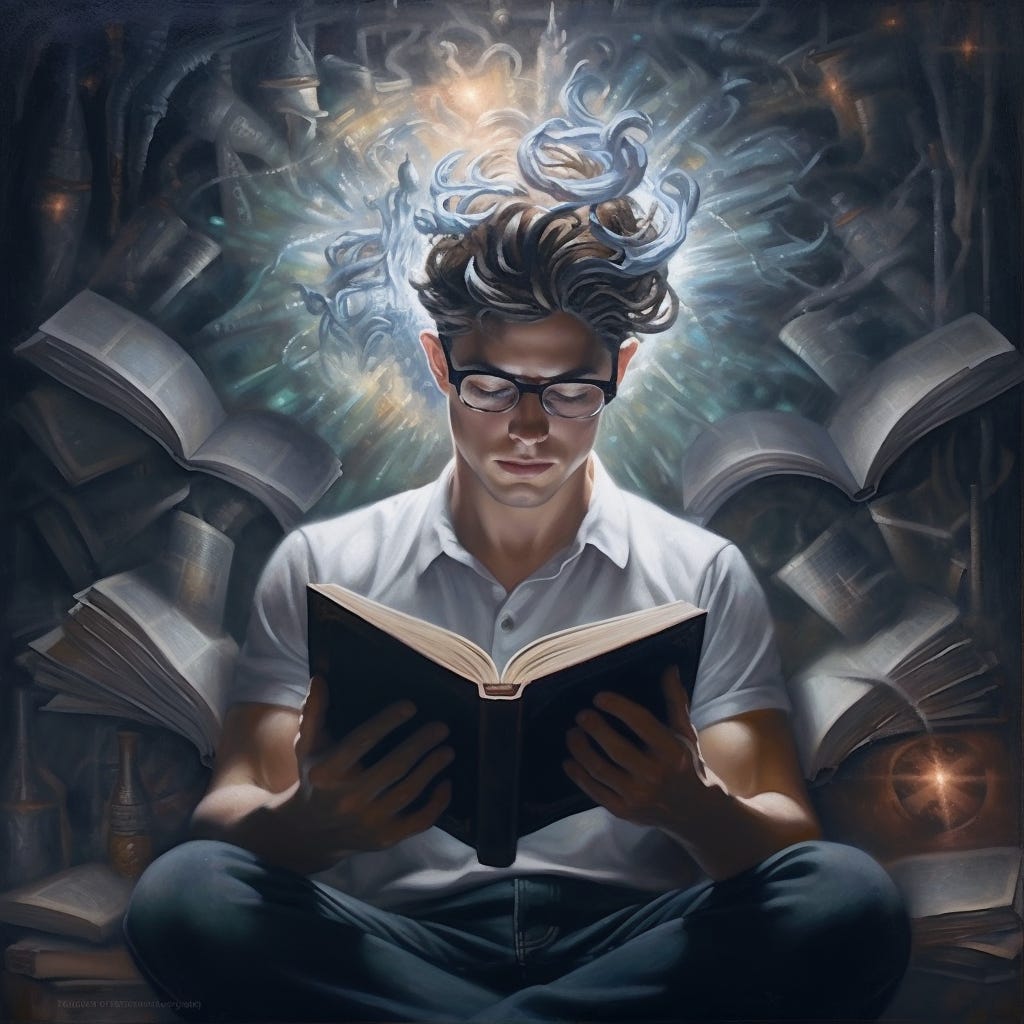
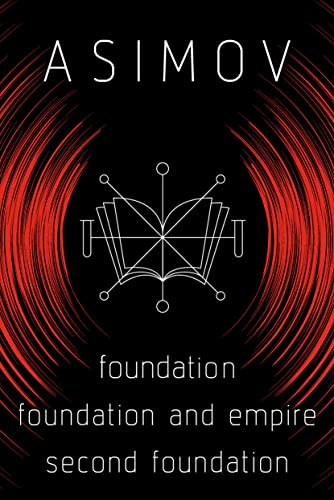
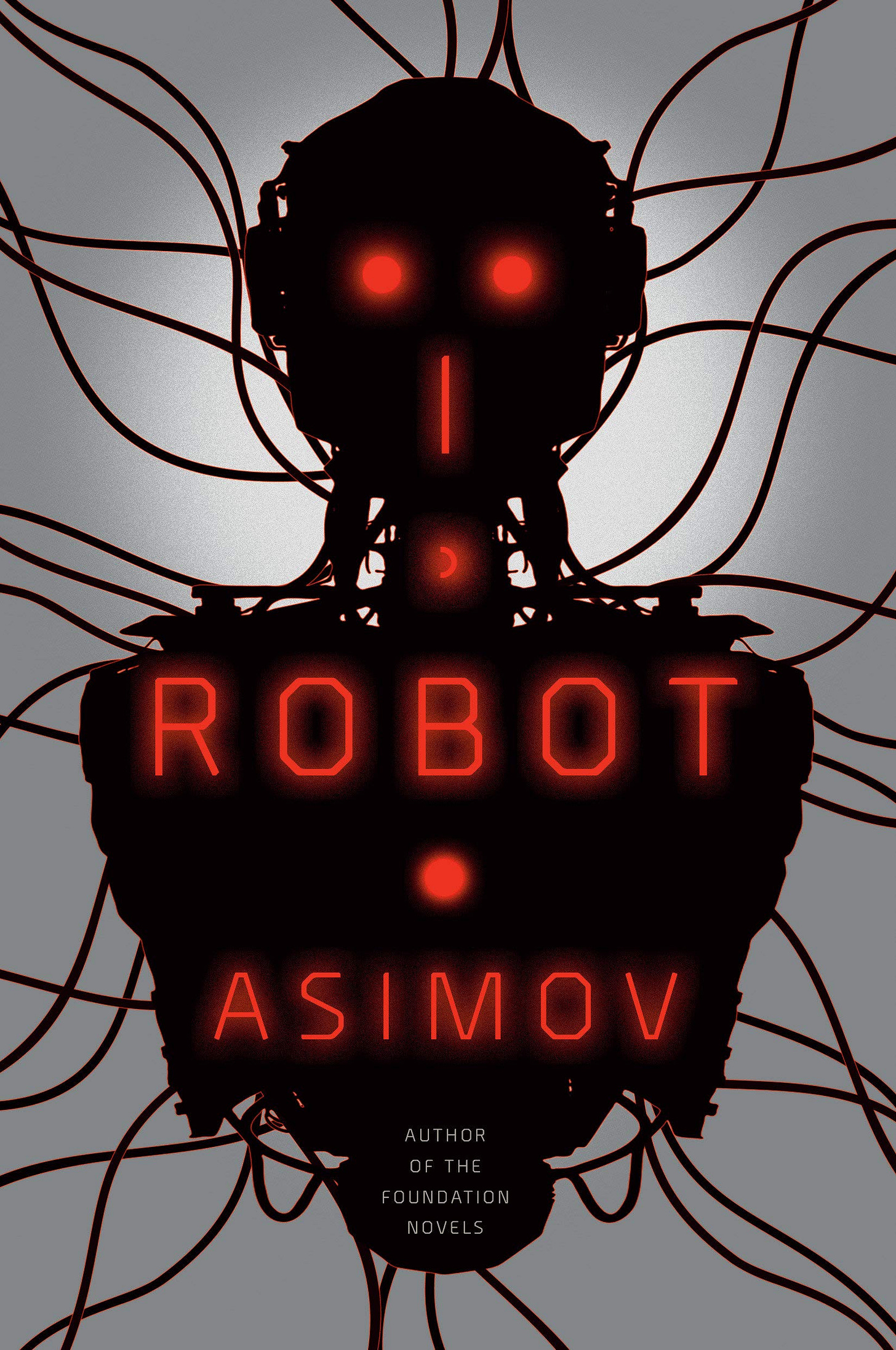
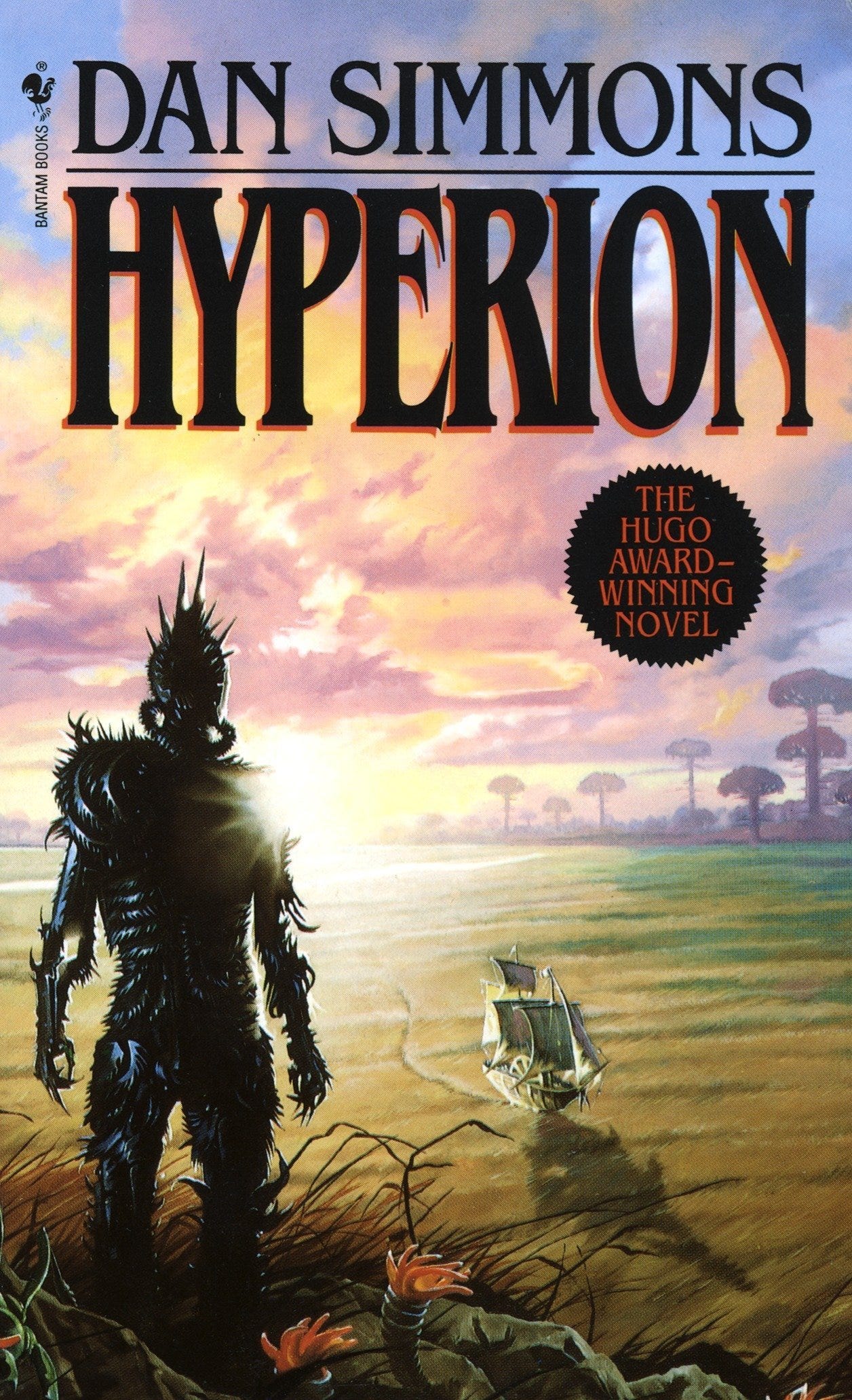
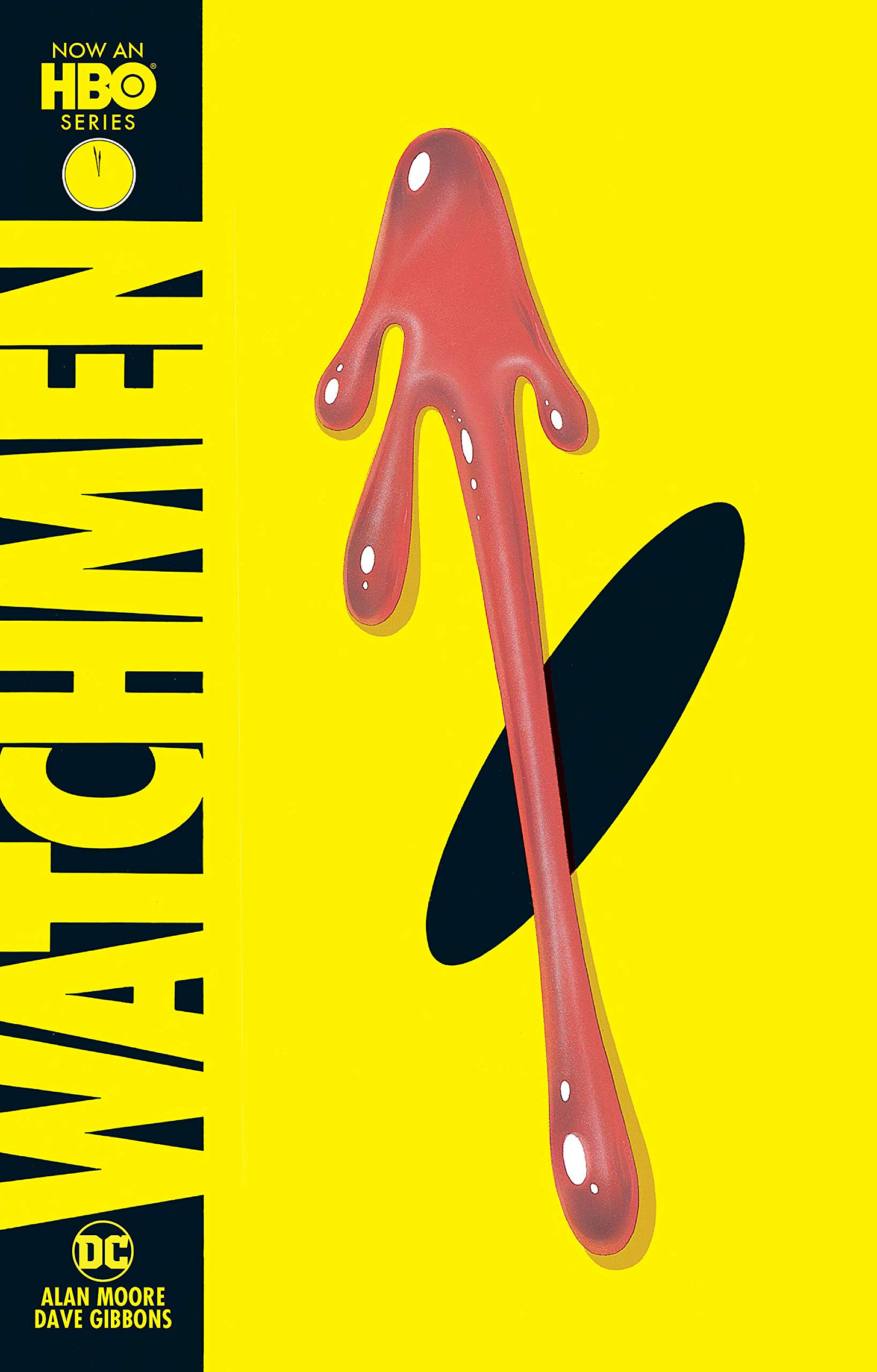



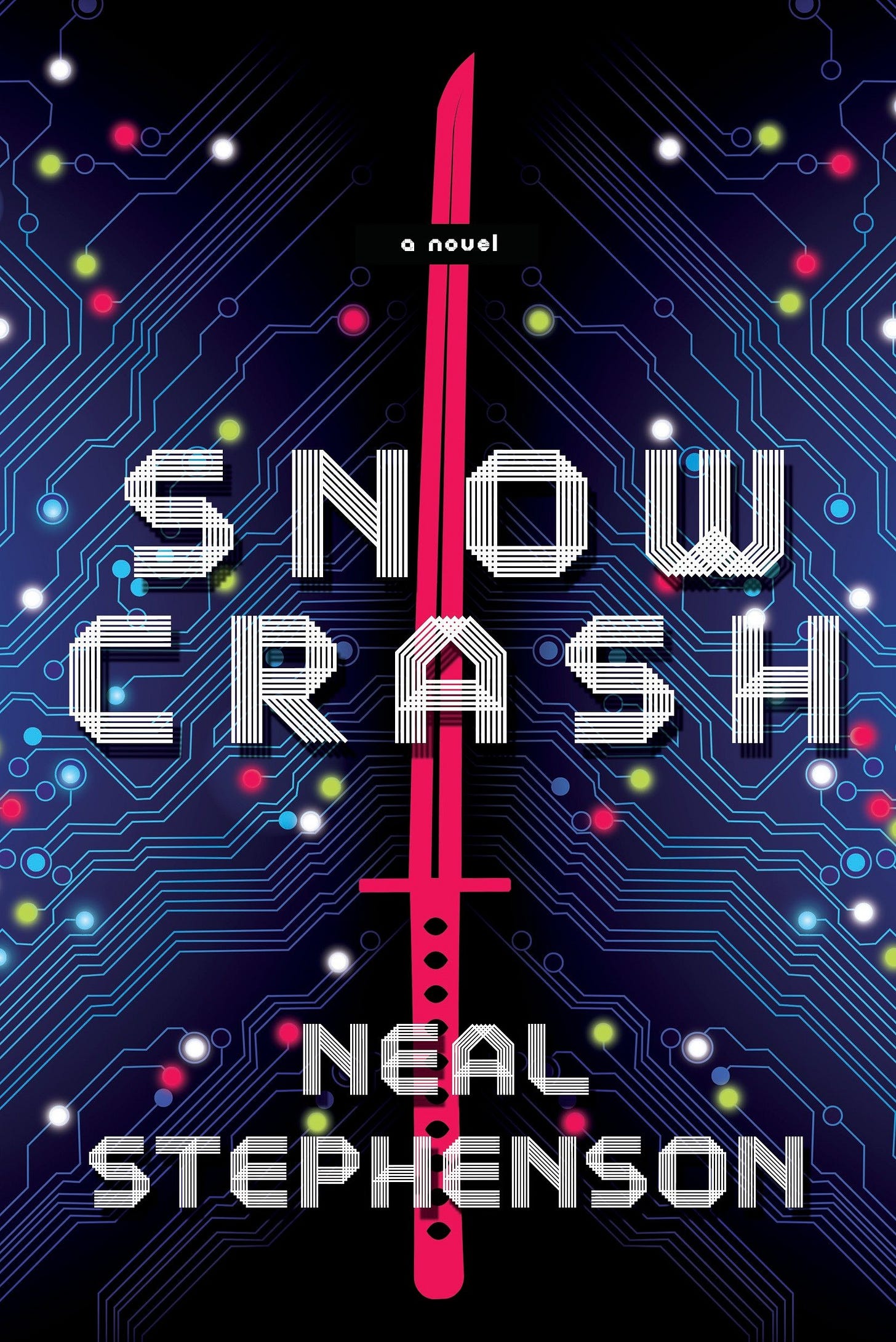

the A.I. dilemma video really made me shiver. Scary to see, that we all know we underestimate the effect AI will have on society - and still underestimate it. Thank you for sharing!